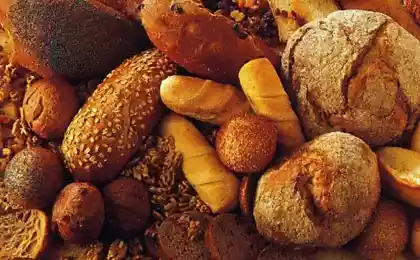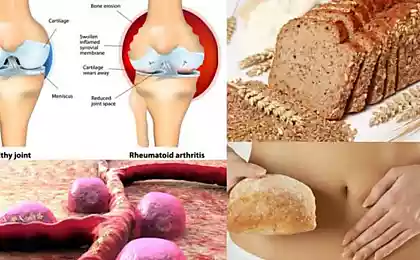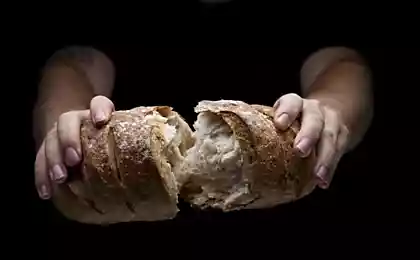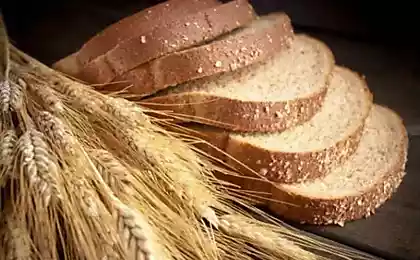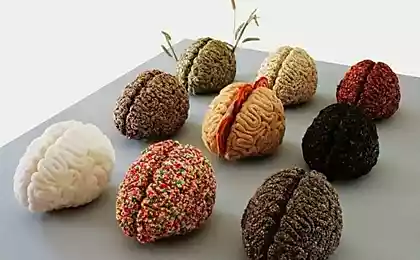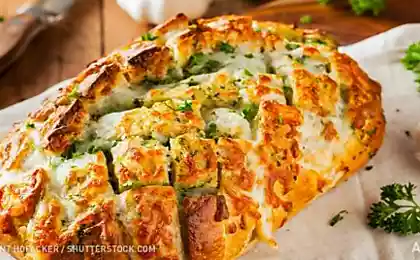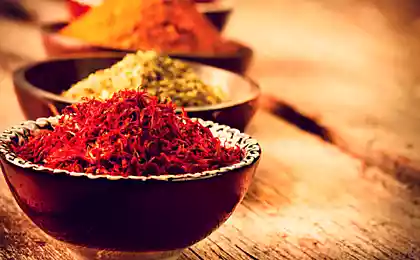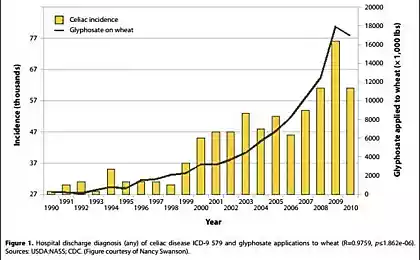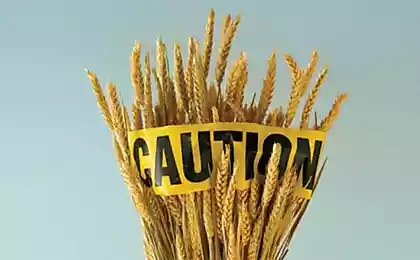820
Neurologist David Perlmutter: What do the bread and opiates
In the book "Food and the brain" neurologist David Perlmutter argues that carbohydrates are destroying our Central nervous system.

About the author
David Perlmutter is a practicing neurologist and a fellow of the American College of nutrition, lecturer and author of numerous articles. Awarded American College of Nutrition and the Linus Pauling for his revolutionary research in the field of neurological diseases.
"Tell that decided to avoid gluten, and see how things will perk up," advises James St James in a letter to his friend.
Publish an excerpt from the book explaining why to hate gluten fashionable.
Gluttony glue
Gluten, which translated from Latin means "glue", is a complex protein that "glues" the grains of flour in the manufacture of bakery products. When you bite into a soft muffin or stretch the pizza dough, you owe it gluten.
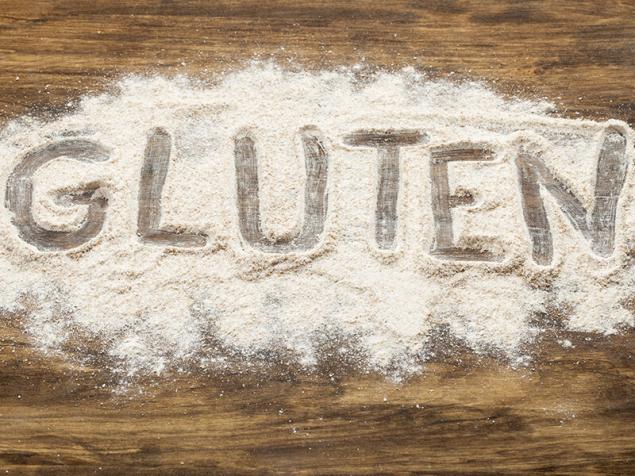
Most people consume gluten with wheat, but it contains and in many other grains, including rye, barley, spelt, Kamut and bulgur. In addition, it is one of the most common additives used not only in food but in personal care products. As a reliable stabilizer it is used for making soft cheeses, for giving smooth texture to margarine, it does not curl up sauces and gravies. Gluten is contained in conditioners for hair thickening and volumizing mascara. Like any other protein, it can cause allergic reactions.
Sensitivity to gluten can cause damage in any organ.
Usually in the base of the food sensitivity is the immune system's response to irritant.
Another reason is the absence or lack in the body need enzymes digesting a particular product.
In the case of gluten, its "stickiness" prevents absorb nutrients. Poorly digested food turns into a pasty substance, which irritates the mucous membrane of the small intestine. In the end you get abdominal pain, nausea, diarrhea, constipation, and other disorders.
However, the intestinal symptoms were observed not at all, and their absence does not guarantee the security of other organs such as the nervous system.
When the body perceives food particles as an enemy, the immune system throws at combating messengers of inflammation, including killer cells. The battle damaged the intestinal wall and develops a condition known as "leaky gut syndrome".
The excess of gluten in the modern dietIf gluten is so bad and we've used it, how we managed to survive? Response: we did not use this to gluten until our ancestors learned to grow and grind the wheat. Besides the grains we eat today bear little resemblance to the that entered our diet about 10,000 years ago.
Although genetics and human physiology has changed little since the time of our ancestors, over the past 50 years the food chain has changed considerably. Modern food production, including genetic engineering, has allowed us to grow grains that contain forty times more gluten than cultivated just a few decades ago.
If it is directed at increasing the yield, or matching the tastes of the people, or both — is anyone's guess. We know one thing: modern grains containing gluten, are more addictive than ever.
If you experience a rush of pleasure, eating a bagel, scone, donut or croissant, it's not your imagination. Since the late 1970s, we know that the stomach gluten breaks down into a mix of polypeptides that can cross the blood-brain barrier*.
*Semi-permeable barrier between blood and nerve tissue, preventing the penetration into the brain chemical compounds and various harmful agents.
Entering, they bind to the opiate receptors in the brain and cause a feeling of pleasure. These are the same receptors that bind opiates to create a pleasant, albeit addictive effect. For the first time this effect was discovered by Dr. Cristina Sidru and her colleagues from the National Institute of health, USA.
Given the above, is it any wonder that manufacturers are trying to push the products as much gluten? And is it any wonder that there are so many people experiencing addiction to foods filled with gluten, not only inciting the flames of the inflammation but also causing the obesity epidemic?
I think not. Everyone knows that sugar and alcohol creates a feeling of well-being and tempting to go back and repeat. But what about foods containing gluten, such as whole-wheat bread and instant oatmeal? The idea that gluten can cause fun and addictive, it seems strange. And scary.
If gluten really is a psychotropic substance, and science proves it to be so, we need to re-evaluate the products with its contents and their place in our diet.
Watch how people eat gluten is overloaded with carbs is like watching someone pouring themselves a cocktail of gasoline. Gluten is the tobacco of our generation. Not only that sensitivity to gluten is far more widespread than you think, it's almost all causes of potential harm and hides where you least suspect.
Gluten is contained in condiments, ice cream and even cosmetics. It's disguised in soups, sweeteners and soy products. He hides in food supplements and branded drugs. The term "gluten-free" becomes so vague and diluted, as "organic" and "natural".
Over millions of years the diet of our ancestors consisted of wild game, seasonal vegetables and sometimes berries. Today, the diet of most people is based on grains and carbohydrate-rich foods, many of which contain gluten. And it's not just him.
The use of such large quantities of grains and carbohydrates causes a much greater increase in blood glucose levels than meat, fish, poultry and vegetables.
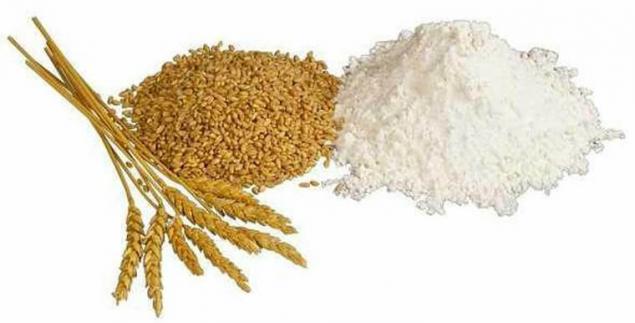
And this, in turn, affects the production of insulin. The higher the sugar level, the more of this hormone is required. But the more insulin, the lower the sensitivity of cells to his signal. In order to force the cells to react, the pancreas works overtime, increasing insulin production, to continue to maintain the necessary balance of blood sugar. And although he remains normal, the insulin level grows.
The result is a stalemate: the pancreas cannot produce more insulin, and what it produces, is not enough.
At this point, cells eventually lose their ability to respond to the signal of insulin and develop diabetes of the 2nd type.
However, don't have to be diabetic to suffer from chronic high blood sugar.
Signs of sensitivity to gluten— indigestion (gas, bloating, diarrhea, constipation, cramps, etc.).
— Irritable bowel syndrome.
— Malabsorption of food.
— Nausea / vomiting.
— Growth retardation.
— The hives / rash.
Confusion.
— Neurological disorders (dementia, Alzheimer's disease, schizophrenia, etc.).
Convulsions / epilepsy.
— Ataxia, loss of balance.
— Constant ailments.
— Pain in the chest.
— Intolerance to dairy products.
— Craving for sweets.
— Bone pain / osteopenia / osteoporosis.
— Heart disease.
— Anxiety.
— Depression.
— ADHD.
— Infertility.
— Miscarriages.
— Migraines.
— Autism.
— Alcoholism.
Cancer.
— Parkinson's Disease.
BASS.
— Autoimmune disorders (e.g., diabetes, Hashimoto's thyroiditis, rheumatoid arthritis).
Celiac police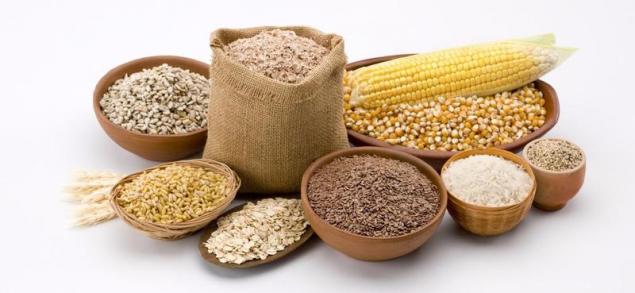
Grains and starches that contain gluten:— wheat and its embryos;
— rye;
— barley;
bulgur;
— couscous;
— wheat flour;
— Kamut;
— matzah;
— semolina;
— spelt.
Grains and starches are gluten free:— buckwheat;
— corn;
— millet;
— potatoes;
— quinoa;
— Fig;
— sorghum;
soy;
tapioca;
— metlicka Abyssinian.
The following foods often contain gluten:malt / malt extract;
— prepared soups and broths (liquid or cubes);
— meat products;
— fries (often sprinkled with flour before freezing);
— processed cheese, blue cheese;
— mayonnaise;
— ketchup;
soy sauce and teriyaki sauce;
— salad dressings;
— marinades;
— imitation crab meat;
— sausage;
— hot dogs;
— non-dairy creamer;
— prepared chocolate milk;
— fried vegetables / tempura;
— canned baked beans;
— cereals;
— breaded products;
fruit fillings and puddings;
ice cream;
— energy bars;
— syrups;
— instant hot beverages;
— flavoured coffee and tea;
— oats;
— oat bran;
— roasted nuts;
beer;
— vodka.
Other sources of gluten:shampoos;
— cosmetics, including lipstick, lip balm, medications, including vitamins and supplements (check the label).
Gluten can be encrypted for these namesis Maltodextrin.
— Extract fitotehnie.
Amino-peptide complex.
Tocopherol / vitamin E.
— Yeast extract.
— Natural flavoring.
— The brown rice syrup.
— Modified food starch.
— Hydrolyzed vegetable protein (GRB).
— Hydrolyzed protein.
Caramel color (frequently made from barley).
— Avena sativa (oats seed).
— Hordeum distichon (two-rowed barley).
— Hordeum vulgare (common barley).
— Сereale Secale (rye).
— Triticum aestivum (soft wheat).
— Triticum vulgare (common wheat).
— Cyclodextrin.
— Dextrin.
— Fermented grain extract.
— The hydrolysate.
— Hydrolyzed malt extract.
— Hydrolyzed vegetable protein.published
P. S. And remember, only by changing their consumption — together we change the world! ©
Source: w-o-s.ru/article/10333

About the author
David Perlmutter is a practicing neurologist and a fellow of the American College of nutrition, lecturer and author of numerous articles. Awarded American College of Nutrition and the Linus Pauling for his revolutionary research in the field of neurological diseases.
"Tell that decided to avoid gluten, and see how things will perk up," advises James St James in a letter to his friend.
Publish an excerpt from the book explaining why to hate gluten fashionable.
Gluttony glue
Gluten, which translated from Latin means "glue", is a complex protein that "glues" the grains of flour in the manufacture of bakery products. When you bite into a soft muffin or stretch the pizza dough, you owe it gluten.

Most people consume gluten with wheat, but it contains and in many other grains, including rye, barley, spelt, Kamut and bulgur. In addition, it is one of the most common additives used not only in food but in personal care products. As a reliable stabilizer it is used for making soft cheeses, for giving smooth texture to margarine, it does not curl up sauces and gravies. Gluten is contained in conditioners for hair thickening and volumizing mascara. Like any other protein, it can cause allergic reactions.
Sensitivity to gluten can cause damage in any organ.
Usually in the base of the food sensitivity is the immune system's response to irritant.
Another reason is the absence or lack in the body need enzymes digesting a particular product.
In the case of gluten, its "stickiness" prevents absorb nutrients. Poorly digested food turns into a pasty substance, which irritates the mucous membrane of the small intestine. In the end you get abdominal pain, nausea, diarrhea, constipation, and other disorders.
However, the intestinal symptoms were observed not at all, and their absence does not guarantee the security of other organs such as the nervous system.
When the body perceives food particles as an enemy, the immune system throws at combating messengers of inflammation, including killer cells. The battle damaged the intestinal wall and develops a condition known as "leaky gut syndrome".
The excess of gluten in the modern dietIf gluten is so bad and we've used it, how we managed to survive? Response: we did not use this to gluten until our ancestors learned to grow and grind the wheat. Besides the grains we eat today bear little resemblance to the that entered our diet about 10,000 years ago.
Although genetics and human physiology has changed little since the time of our ancestors, over the past 50 years the food chain has changed considerably. Modern food production, including genetic engineering, has allowed us to grow grains that contain forty times more gluten than cultivated just a few decades ago.
If it is directed at increasing the yield, or matching the tastes of the people, or both — is anyone's guess. We know one thing: modern grains containing gluten, are more addictive than ever.
If you experience a rush of pleasure, eating a bagel, scone, donut or croissant, it's not your imagination. Since the late 1970s, we know that the stomach gluten breaks down into a mix of polypeptides that can cross the blood-brain barrier*.
*Semi-permeable barrier between blood and nerve tissue, preventing the penetration into the brain chemical compounds and various harmful agents.
Entering, they bind to the opiate receptors in the brain and cause a feeling of pleasure. These are the same receptors that bind opiates to create a pleasant, albeit addictive effect. For the first time this effect was discovered by Dr. Cristina Sidru and her colleagues from the National Institute of health, USA.
Given the above, is it any wonder that manufacturers are trying to push the products as much gluten? And is it any wonder that there are so many people experiencing addiction to foods filled with gluten, not only inciting the flames of the inflammation but also causing the obesity epidemic?
I think not. Everyone knows that sugar and alcohol creates a feeling of well-being and tempting to go back and repeat. But what about foods containing gluten, such as whole-wheat bread and instant oatmeal? The idea that gluten can cause fun and addictive, it seems strange. And scary.
If gluten really is a psychotropic substance, and science proves it to be so, we need to re-evaluate the products with its contents and their place in our diet.
Watch how people eat gluten is overloaded with carbs is like watching someone pouring themselves a cocktail of gasoline. Gluten is the tobacco of our generation. Not only that sensitivity to gluten is far more widespread than you think, it's almost all causes of potential harm and hides where you least suspect.
Gluten is contained in condiments, ice cream and even cosmetics. It's disguised in soups, sweeteners and soy products. He hides in food supplements and branded drugs. The term "gluten-free" becomes so vague and diluted, as "organic" and "natural".
Over millions of years the diet of our ancestors consisted of wild game, seasonal vegetables and sometimes berries. Today, the diet of most people is based on grains and carbohydrate-rich foods, many of which contain gluten. And it's not just him.
The use of such large quantities of grains and carbohydrates causes a much greater increase in blood glucose levels than meat, fish, poultry and vegetables.

And this, in turn, affects the production of insulin. The higher the sugar level, the more of this hormone is required. But the more insulin, the lower the sensitivity of cells to his signal. In order to force the cells to react, the pancreas works overtime, increasing insulin production, to continue to maintain the necessary balance of blood sugar. And although he remains normal, the insulin level grows.
The result is a stalemate: the pancreas cannot produce more insulin, and what it produces, is not enough.
At this point, cells eventually lose their ability to respond to the signal of insulin and develop diabetes of the 2nd type.
However, don't have to be diabetic to suffer from chronic high blood sugar.
Signs of sensitivity to gluten— indigestion (gas, bloating, diarrhea, constipation, cramps, etc.).
— Irritable bowel syndrome.
— Malabsorption of food.
— Nausea / vomiting.
— Growth retardation.
— The hives / rash.
Confusion.
— Neurological disorders (dementia, Alzheimer's disease, schizophrenia, etc.).
Convulsions / epilepsy.
— Ataxia, loss of balance.
— Constant ailments.
— Pain in the chest.
— Intolerance to dairy products.
— Craving for sweets.
— Bone pain / osteopenia / osteoporosis.
— Heart disease.
— Anxiety.
— Depression.
— ADHD.
— Infertility.
— Miscarriages.
— Migraines.
— Autism.
— Alcoholism.
Cancer.
— Parkinson's Disease.
BASS.
— Autoimmune disorders (e.g., diabetes, Hashimoto's thyroiditis, rheumatoid arthritis).
Celiac police

Grains and starches that contain gluten:— wheat and its embryos;
— rye;
— barley;
bulgur;
— couscous;
— wheat flour;
— Kamut;
— matzah;
— semolina;
— spelt.
Grains and starches are gluten free:— buckwheat;
— corn;
— millet;
— potatoes;
— quinoa;
— Fig;
— sorghum;
soy;
tapioca;
— metlicka Abyssinian.
The following foods often contain gluten:malt / malt extract;
— prepared soups and broths (liquid or cubes);
— meat products;
— fries (often sprinkled with flour before freezing);
— processed cheese, blue cheese;
— mayonnaise;
— ketchup;
soy sauce and teriyaki sauce;
— salad dressings;
— marinades;
— imitation crab meat;
— sausage;
— hot dogs;
— non-dairy creamer;
— prepared chocolate milk;
— fried vegetables / tempura;
— canned baked beans;
— cereals;
— breaded products;
fruit fillings and puddings;
ice cream;
— energy bars;
— syrups;
— instant hot beverages;
— flavoured coffee and tea;
— oats;
— oat bran;
— roasted nuts;
beer;
— vodka.
Other sources of gluten:shampoos;
— cosmetics, including lipstick, lip balm, medications, including vitamins and supplements (check the label).
Gluten can be encrypted for these namesis Maltodextrin.
— Extract fitotehnie.
Amino-peptide complex.
Tocopherol / vitamin E.
— Yeast extract.
— Natural flavoring.
— The brown rice syrup.
— Modified food starch.
— Hydrolyzed vegetable protein (GRB).
— Hydrolyzed protein.
Caramel color (frequently made from barley).
— Avena sativa (oats seed).
— Hordeum distichon (two-rowed barley).
— Hordeum vulgare (common barley).
— Сereale Secale (rye).
— Triticum aestivum (soft wheat).
— Triticum vulgare (common wheat).
— Cyclodextrin.
— Dextrin.
— Fermented grain extract.
— The hydrolysate.
— Hydrolyzed malt extract.
— Hydrolyzed vegetable protein.published
P. S. And remember, only by changing their consumption — together we change the world! ©
Source: w-o-s.ru/article/10333



